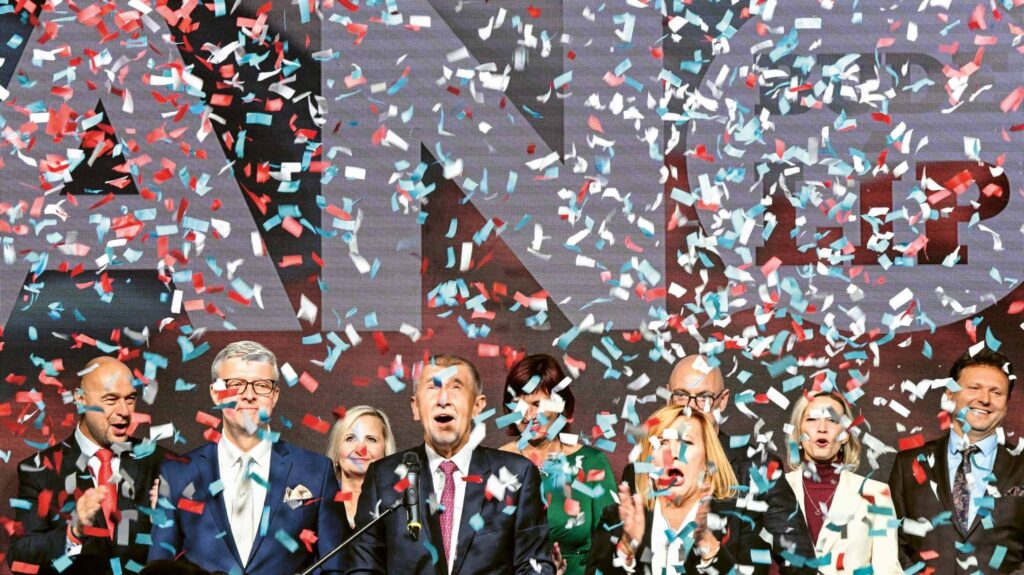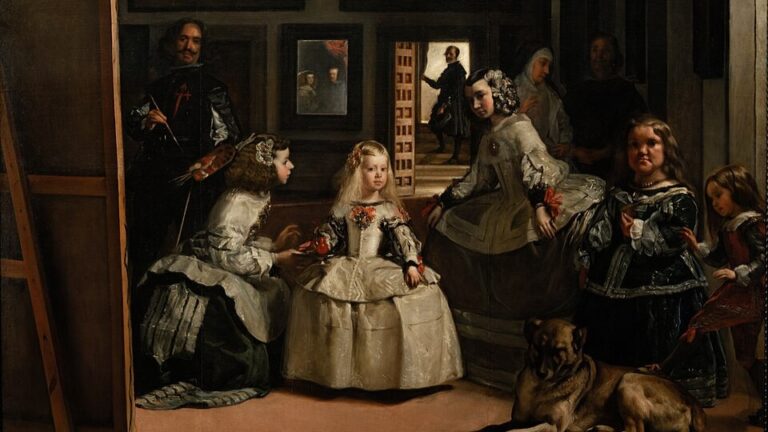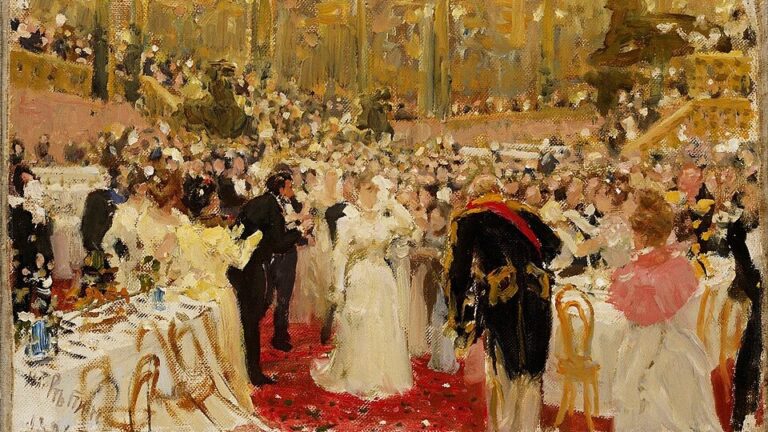Oakeshott’s Relevance Today
Despite the tendencies outlined in the first part, looking at Oakeshott’s work as a whole, it seems that he believed the idea of civil association or Societas to be more dominant in European political consciousness than Universitas, and—despite its current realization or historical ‘swings’—Societas still fundamentally constitutes the ‘true European tradition’. In his essay ‘The Masses and Representative Democracy’ he also argues that the morality of true individuality is dominant because it is an original, positive and self-based principle, while the morality of the anti-individualist or mass man is a derivative, reactive and ultimately incoherent morality, something that is much more a ‘shadow and reaction’ than positive and original. Although Oakeshott clearly takes into account the important principle that ‘all light casts a shadow’ and that, as a result, development in the sense of ‘progress’ open to infinity is impossible under any circumstances, the mass man is, for him, an entirely derivative character, not viable in himself, but rather a symbol of desperate flight from the challenges of individuality; a kind of parasite, capable of survival only through constant ‘parasitism’ on individuality.
According to Oakeshott, ‘true individuality’ and the ‘civil association’ related to it are, on the whole, more coherent and less derivative concepts than their opposites, the ‘false individual’ and Universitas. Despite his criticism of contemporary trends, it cannot be said that the modern state has developed into a definitive Universitas-like state. He therefore sees the modern European state not as a clearly negative experience, but rather as an ambivalent one. His explicit preference for Societas does not in any way mean that he believes the state should be defined solely on the basis of Societas, nor does it affect his fundamental thesis that there is an unresolved tension between Societas and Universitas. He clearly does not seek to resolve this tension, but rather to reveal it, believing that all other tensions, such as those expressed in the words ‘right’ and ‘left’ or in the classification of political parties, seem insignificant in comparison.[1]
This somewhat optimistic assumption, however, appears to be contradicted by Oakeshott’s view that the ‘class’ represented by the individual manqué is, in fact, far more populous than that of ‘true individuality’. Not in the form of explicit propositions—an approach alien to his style—but implicitly and coherently across several of his essays, he suggests that modern centralized states, mass democracy, and ideological movements such as communism, fascism, or ideological ‘democratism’ have contributed to the proliferation of the individual manqué type, while the ‘true individual’ has become a rare and particularly virtuous character type, increasingly less representative of modern European societies.
Beginning at the end of the 18th century, intensifying throughout the 19th, and reaching a peak in the 20th century, rational planning and an emphasis on collective goals increasingly distracted individuals from the demands of independent thought and action. The promise of security, prosperity, and equality made the prospect of surrendering the responsibilities that accompany freedom all the more attractive.
In his essays ‘Rationalism in Politics’ (1962) and ‘On Being Conservative’ (1956), we find numerous arguments that draw a parallel between the ‘rationalist’ and the ‘individual manqué’: ‘knowledge without knowledge’—that is, the desire for knowledge that recognizes only technical knowledge as true knowledge—creates people who, being incapable of relying on intuitive knowledge closely related to inner freedom and not ‘derived from textbooks’, can very easily be classified as ‘individual manqué’.[2] In ‘On Being Conservative’, Oakeshott—while emphasizing that conservatives ‘make do with what there is’—argues that rationalist and progressive attitudes constantly seek change, progress, and ‘perfection’: this may also be a characteristic of the individual manqué, who, as we know, often seeks some kind of utopia—in modernity, most often of a technical nature. When Oakeshott, in connection with the Universitas-type conception of the state, speaks of the ‘planning’ state that wants to ‘solve’ everything, he also refers to the fact that with the emergence of such states, people largely transfer their freedom of action and decision-making to the state, which is led by various ‘experts’.
Overall, we can say that, according to Oakeshott, the rationalist way of thinking that is so characteristic of our age creates a type of person who desires above all external goals and guidance, who wants others to ‘tell him’ what values are important, what the most important goals are, what their desires should be directed towards, or how they should act. It seems clear that the sum of these arguments and considerations led Oakeshott to implicitly suggest that the ‘individual manqué’ truly represents the most populous ‘class’ in modern Europe, and that the social, political, and intellectual environment tends to reinforce this type, while the ‘true individual’ and the associated Societas-type state are more of an ideal type, something to strive for, but which seems to have less and less space in the most modern times. The statement that Societas represents the ‘true European tradition’ in European political consciousness is more of a normative assertion: true European freedom is realized in the Societas model, or at least it should be, whereas in real modernity most people—especially connected to totalitarian ideologies, but also democrats—strive for the realization of the Universitas. The irrepressible desire for Societas can be expressed more as a kind of hope, something that, according to Oakeshott, lives on in the European collective consciousness.
Oakeshott ultimately argues that Societas is a tradition rooted in European antiquity and spanning Christianity and liberal thought to the rule of law, carrying above all the ideas of limited government and individual freedom, which are principles important primarily to liberals. This is the idea that should be nurtured and returned to. Those who argue that Oakeshott was, in fact, a liberal thinker base their arguments primarily on this ideal. It is clear that when Oakeshott accepts the idea of a ‘social order governed by non-instrumental rules, without coercive ends’, and thereby rejects premodern conceptions of society (such as medieval ‘lordship’), he is indeed outlining a view of society that is fundamentally more characteristic of liberals than conservatives. This view of society resembles in many respects the society that Hayek considered ideal in his famous essay ‘Why I am not a Conservative’. At the same time, Oakeshott immediately rejects other tendencies characteristic of Hayek’s liberalism, such as utilitarianism, technocracy, and economism, which he places firmly in the camp of conservative thinking. His proximity to conservative thought is reinforced by the fact that, according to him, ‘prosperity’ cannot be the goal of civil association, but only a possible side effect.[3]
‘The irrepressible desire for Societas can be expressed more as a kind of hope, something that…lives on in the European collective consciousness’
Civil association is ultimately not an instrumental practice, but a moral ideal rather than a utilitarian enterprise. On the one hand, it can be argued, as certain liberal interpreters do, that Oakeshott is merely attempting to purify liberalism of utilitarianism and economism. On the other hand, however, we may also ask what remains of liberalism if we remove all these components.[4]
Since the essay on democracy was written in the early 1960s and Oakeshott died in 1990, he was unable to reflect on the later developments that have taken place, which would obviously paint a much bleaker picture for him with regard to the decline of the Societas.
It is clear that the dominance of technology and the closely related views that reinforce the primacy, even the supremacy, of technical knowledge are extremely paradigmatic in the current phase of modernity. This spirit characterizes the so-called ‘fourth industrial revolution’, which is part of the logic of rationalization and rationalism. The world is becoming increasingly virtual through technology, and technology is becoming more and more integrated into new control mechanisms. The landscape unfolding before us every day can best be described as an ‘industrial landscape’, given the growing trend toward urbanization: the vast majority of people live in a highly rationalized environment, defined by planning and constant external stimulation, which Spengler calls ‘mega- and gigapolises’, or in agglomerations with various characteristics of large cities. Parallel to the increasing massification of modern urban life, a ‘mass mentality’ is also coming to the fore, which in no way characterizes ‘true individuality’.
One of the most important characteristics of modern capitalism is that it motivates people by external, primarily material goals, while increasingly sophisticated advertising techniques always orient people toward the easiest, most technical, and ‘most convenient’ solutions. Although there is a kind of cult of individuality in modern capitalism—advertisements emphasize what is ‘best for you’—this cult is in fact directed at the masses, and the individual is a ‘consumer unit’ in whom various desires and goals must be instilled for the machinery of production and profit to keep moving.
Political practice in modern mass democracies works on a very similar principle: political parties—which today operate not on the model of the Societas but on that of the Universitas, as special assemblies of experts with technical knowledge—present themselves as the solution to certain problems and implant their ‘messages’ in the minds of voters, which are often collectivist and rationalist in nature. The ‘equality’ of voters does not reinforce a genuine sense of individuality, but rather the insignificance of the individual and the importance of the masses, since each individual vote ‘counts the same’; individual ideas about politics or individual knowledge specific to a given person are irrelevant. Such equality is, in fact, equivalent to a renunciation of the value of individuality in the practice of politics.
Techno-utopian evangelism today glorifies technology and materialism interpreted as science. One of the tendencies of the Universitas state, which Oakeshott called the ‘enlightened governmental narrative’, appears much more powerful in this regard than it did at the moment of its birth in the 18th century. Another possible tendency toward the validation of the Universitas—which we believe is closely related to the ‘enlightened narrative’—is the narrative of the state as a ‘healing corporation’, which is perhaps even more characteristic. This trend has also manifested itself in an aggressive form, for example, during the COVID pandemic, but it also permeates contemporary society in other very characteristic ways. The extremely popular thinker Yuval Noah Harari finds both trends, the ‘enlightened narrative’ and the ‘healing corporation’, prominently in his books. Harari—and other transhumanists—explicitly argue that the ‘human condition’ must be cured with the help of technology and science, envisioning the future merger of humans and machines.
The second trend, mentioned by Oakeshott regarding the realization of Universitas, in which the state appears as an ‘enterprise exploiting the resources of the earth’, is also very strong. In connection with the deepening and slowly pervasive environmental crisis, the rhetoric of the application of new, ‘environmentally friendly’ technologies and ‘green transition’ programmes is coming to the fore. At the same time, it is clear that these do not reduce the ‘ecological footprint’, and environmental pollution is becoming increasingly evident and pronounced throughout the world. As long as the modern world’s gigantic technical apparatus is driven primarily by the pursuit of profit and overriding material interests, this tendency towards exploitation and even ‘squeezing’—which is an inherent part of modernity itself—is unlikely to change.
‘Techno-utopian evangelism today glorifies technology and materialism interpreted as science’
The violent ideological manifestations of progressivism have already caused a great deal of damage in the fabric of different societies, but there is no doubt that it is the deeply rooted idea and widespread acceptance of technological civilization that is most capable of transforming society from Societas to Universitas. Technical civilization ultimately leads to complete uniformity. Although there is much talk today about individual rights and the individual in general, as well as an unprecedented amount of discourse about freedom and liberty, the heightened omnipresence of technical domination imposes a standardized code of conduct across virtually the entire planet. This code of conduct—although at first glance it seems to ‘liberate’ us from previous ‘shackles’, such as the religious constraints of traditional societies or the strict customs of ‘patriarchal’ societies—does not actually favour the ‘true individual’.
Pre-modern societies, which were bound by the development of individuality and offered few opportunities for ‘breakout’, were primarily based on the image of a transcendent world order. In these societies, the true ‘breakout’ was primarily open in transcendental direction: although ‘social mobility’ did exist in medieval civilization, it is clear that the value of individuality was not the same as in the modern era or the Renaissance. Oakeshott emphasized that in premodern times it was very difficult to grasp ‘individual human character’—this may be true in the sense that people’s thinking was largely shaped by belief systems linked to major religions (or local traditions), which did not attach as much value to the worldly fulfilment of the personality as later liberalism did. From a liberal point of view, this may seem like a kind of ‘oppression’ or ‘denial of rights’. At the same time, it is clear that autonomy as an expectation was much more characteristic of medieval people, even the peasantry, who made up the vast majority of society, than of contemporary welfare states, who seem to depend more than in any previous period on the state, or on ‘market forces’ over which they have little individual influence.
If we think of the pre-modern world that preceded modern liberalism, we see it as much less uniform: we see local autonomous communities, people of different ranks and legal statuses, jealously guarding their unique and characteristic freedoms. We see different architectural styles, languages, customs, and clothing, and, despite a common religious and cultural foundation, societies and traditions nourished by their own ancient roots. Compared to this, the emergence of the modern individual in the modern era represented a huge upheaval: with the breakdown of traditional forms, it is true that the possibilities for mobility and individuality suddenly increased; but, as Oakeshott emphasizes, this did not last long.
In the current phase of modernity—although, of course, there may be ‘dissidents’ in every age—the degree of standardization that is unfavourable to the ‘true individual’ seems to be greater than in any previous period. This applies not only to clothing, buildings, products, and consumer goods, but also to the standardization of ideas and thoughts: the deepest problem lies in the fact that general conformity in feelings and thinking is supported by the apparent comforts of technical civilization. Today, books, films, and lectures related to a ‘technoutopian evangelism’ enjoy unprecedented popularity: while the technical apparatus of the modern world is opening up an unprecedented gap between the ‘super-rich’ and the ‘average income’ (or even impoverished) strata of society, more and more people are waiting for some kind of salvation through science, which tends toward technocratic solutions to the extreme. It is as if human societies could ultimately be saved from disintegration and chaos by these science-based ‘experts’, who could eliminate ‘backwardness’ and steer us toward ‘true freedom’, as possessors of the supposed objectivity of machine and technical knowledge, are already perfectly free from the distracting circumstances of human individuality.
‘Today, books, films, and lectures related to a “technoutopian evangelism” enjoy unprecedented popularity’
The conception of society as a vast enterprise is a typically economistic, technocratic, and teleocratic idea. It subordinates all individual aspirations to a single, supreme—utopian—goal: the ideal of mere material well-being. This is now at the centre of the masses’ concerns, yet it is becoming increasingly clear that in order to create and maintain such well-being, we must relinquish more and more of what belongs to the freedom of true individuality.
Although explicitly communist tendencies have receded in Western countries in recent decades, the radical egalitarian ideologies characteristic of ‘shallow individuality’ remain present—and, in some cases, have grown stronger (as seen, for example, in the LGBTQ and BLM movements). It can no longer be said that the individual manqué is merely a ‘shadow’; it appears, rather, to be the norm. Today, it is worth reflecting on the extent to which, since Oakeshott’s death, the European experience has shifted from Societas to Universitas—and on the current condition of both the individual and the ‘mass man’.
[1] Oakeshott, 2003, 320.
[2] See in Oakeshott’s Rationalism in Politics and Other Essays, the essay entitled ‘Rationalism in Politics’, (Michael Oakeshott: Rationalism in Politics and Other Essays, Methuen and Co, London, 1962, p. 5). ‘Consider the example of cookery. It might be supposed that an ignorant man, some edible materials, and a cookery book compose together the necessities of a self-moved (or concrete) activity called cooking. But nothing is further from the truth. The cookery book is not an independently generated beginning from which cooking can spring; it is nothing more than an abstract of somebody’s knowledge of how to cook: it is the stepchild, not the parent of the activity…Now, just as a cookery book presupposes somebody who knows how to cook, and its use presupposes somebody who already knows how to use it, and just as a scientific hypothesis springs from a knowledge of how to conduct a scientific investigation and separated from that knowledge is powerless to set empiricism profitably to work, so a political ideology is a mere abridgement of some political know-how, and it is worse than useless to one who is without this know-how.’
[3] Oakeshott, 2003, 319.
[4] As Attila Károly Molnár puts it, liberal interpretations began especially with Rorty’s analyses of Oakeshott, who ‘sees Oakeshott as a representative of sceptical liberalism’. However—as Molnár suggests—Oakeshott is much more a conservative than a liberal. Burke’s influence can be found in his work, and liberal interpretations overlook his concept of authority and his distinct interpretation of the rule of law, which differs from that of liberals. It is important to emphasize that Oakeshott described the conservative position sympathetically in his essay ‘On Being Conservative’. (Attila Károly Molnár, ‘Bevezetés’, in: Michael Oakeshott, Politikai racionalizmus, Új Mandátum, Budapest, 2001, pp. 7–123, p. 11.)
Related articles:






